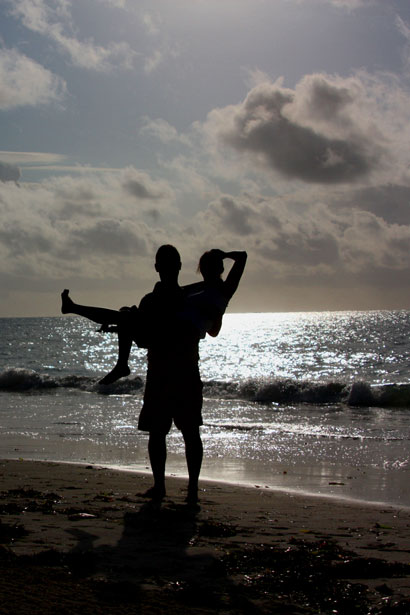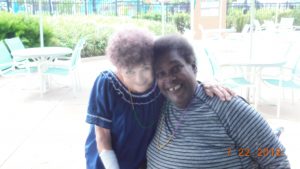Reviewer Bernie Gourley recently described The Things They Carried, Tim O’Brien’s collection of short stories about American military personnel serving in the Vietnam War, as ‘disjointed,’ yet he saw this not as a failing of the book but a reflection of the dislocation of war.
While not always as psychologically intense and disordered as the battlefield, regular life can also be disjointed. Our pasts intrude upon our present, our relationships don’t always come together, and people don’t always tell us what’s true or what makes sense.
This issue, with a collection of pieces written in different styles and for different purposes, hangs together loosely. But perhaps we can see this, as with The Things They Carried, as a look at what things and ideas stay with us as individuals and as cultures, what we can keep and bring forward and what often burdens us, and whether healing is possible. And, also, when and how we ‘carry’ each other through challenging times.

Members of the Costa Rican Red Cross transport a 65-year-old female earthquake victim here from a Joint Task Force-Bravo helicopter to a waiting ambulance Jan. 10 in San Miguel, Costa Rica. Four JTF-Bravo helicopters and 34 American servicemembers deployed from Soto Cano Air Base, Honduras, at the request of the Costa Rican government to provide lifesaving support to those affected by the earthquake. (U.S. Air Force photo/1st Lt. Candace Park)
Doug Hawley highlights how people add confusion to life through his satire of the subterfuge that governments use to get people to support war.
We carry ourselves with us wherever we go, and unfortunately that can mean that the memories and habits that come from and got us through past traumas stay with us even in new situations.
Ahmad Al-Khatat’s Iraqi refugee poetic speakers find themselves coping with lingering grief after resettlement when they remember the people they left behind, and even when they see seemingly innocent objects, such as razor blades.
Abigail George’s protagonist wonders if she can have a romantic relationship with someone because, in addition to the challenges her bipolar disorder poses, becoming intimate will mean facing memories of her past abuse.
J.J. Campbell’s poetry reflects the regrets of lost or never-realized love, while Linda Imbler’s pieces grapple with the large emotional and psychological impact of our pasts, including relationships that can continue to affect us after the people involved have died.
Some pieces speculate on whether the memories or thoughts we carry truly reflect reality or are in fact projections of our own psychology.
Jaylan Salah’s feature on Indian indie film directors, the brothers Santosh and Satish Babusenan, gives them the space to explain how elements of film, including character nudity, don’t have to be interpreted in one particular way, but reflect the state of mind of the viewer. To the Babusenans, nudity isn’t necessarily sexual, it’s just that the film audiences choose to see it that way.
Edward Lee’s poems deal with aspects of how we process memories: memory and love, memory and grief, and whether memories are accurate. Ann Tinkham’s short story presents a character who heads back to her childhood home to find herself, but instead finds people she used to know who are old enough to have started forgetting themselves.
Some writers demonstrate the possibility of overcoming our pasts, letting go of baggage that no longer plays a useful role in our lives.
In Allison Grayhurst’s poetry for this month, romantic love is a major theme. Some lovers aren’t quite together, physically or psychologically, and the past encroaches on some people’s lives. However, other pieces in her set show us couples who have connected and a person experiencing the warm, daily comfort of a relationship. So even though we don’t always realize it perfectly, Grayhurst points to the possibility that true love is something humans can enjoy.
J.D. DeHart’s poetry this time around centers on people who reconsider things, most poignantly a joke that ended up hurting another person’s feelings. Vijay Nair’s pieces deal with reclaiming one’s self-respect, particularly for Black women, by pushing aside social prejudices. Gwil James Thomas’ humorous poetry reminds us to let go of our complaints by putting our issues in perspective.
In a different vein, Mike Zone’s short story renders survival and competition in our modern low wage work ecosystem in a supernatural, mythological manner. His ‘everyman’ hero has to fight off a bully who is really a negative projection of who he could become before he can have a relationship with the woman he loves.
Life is cyclical, and the changing times of day and seasons encourage some authors to let go of past toxicity with a new season and others to maintain the good aspects of their lives.
Michael Robinson’s poetry celebrates long-term love: romantic relationships, spiritual faith, and just finding joy in being alive. He uses natural metaphors to illustrate how the love lasts from one season to the next.
Joan Beebe’s poem shows how a beautiful sunrise suggests the possibility of healing and renewal, and Kevin Rabas’ pieces use musical imagery to show how we can fit into the rhythm of life.
Other pieces go even deeper with the idea of carrying the good forward throughout life and tossing aside whatever holds us back.
In her monthly Book Periscope column, reviewer Elizabeth Hughes reviews novels and a poetry collection that all, in a way, present hero’s journeys.
Marshall Ginevan’s law enforcement hero Eddie Donevant, in the Wrong Side of Loyalty, fights a physical battle with fellow officials who have been corrupted by drug money, while Chris N.’s protagonist in The Place Where the Metaphor Hides rescues her loved one from a fantasy world that incorporates personified elements of literary craft and thus suggests a psychological as well as a physical journey. Ginevan has also said that his hero represents a person trying to live a life of faith in a corrupt world, that his book conveys psychological themes in a subtle, non-explicit way. Avinash Jalani’s poetry collection Little Meditations centers on the internal journey of thinking and understanding oneself.
Mahbub’s poems this time around convey loss and grief, and also encourage us not to discount the wisdom still held within older beliefs and traditions. He also includes a piece pointing to the gentle hope he finds in life’s continuing through his baby daughter.
Arthur C. Ford’s piece shows us a paradox: trees have died to produce the paper to print books, but ideas will die when people don’t even open the books. He suggests that we should not let the trees, or the wisdom, die in vain.
Chimezie Ihekuna, in the penultimate installment of his drama The Success Story, shows the moment when his protagonist receives the fruits of success on his unconventional life’s path and acknowledges and thanks all of the people from his past who have helped him move forward to where he is now.
And, finally, Piotr Kasjas reminds us to remember our stellar origins as living beings on this planet and to make the most of the time we have here.
We hope that reading this issue will be a good use of your time and that you will choose to bring Synchronized Chaos forward into your future. Please feel welcome to read all the pieces here and to leave comments for the authors!



